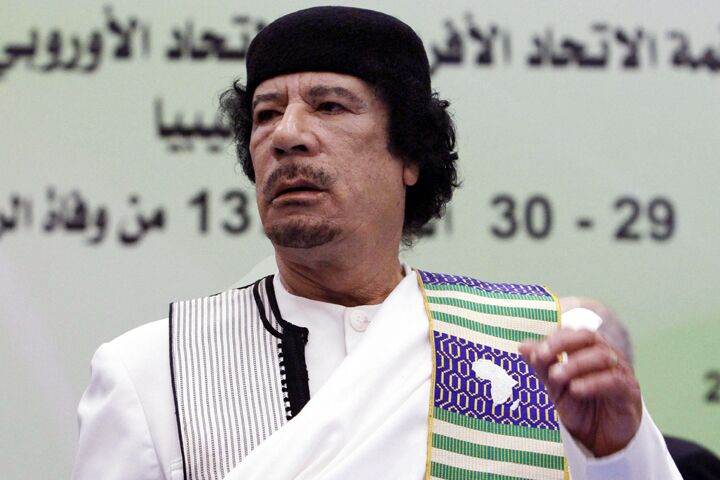
Will Libya Be the Next Arab Domino to Fall?
On February 6, in a Key of David program, Trumpet editor in chief Gerald Flurry spoke about a prophecy recorded in the book of Daniel saying that besides Egypt, “[t]here are two other countries that are specifically mentioned in Daniel 11, verse 40 through verse 44, and those two countries are Libya and Ethiopia.”
He said that these two nations “are going to also ally themselves closely with Iran, if not be controlled by [Iran]” as part of a “strategy by radical Islam to get control of that whole trade route going through the Red Sea and the Mediterranean Sea, where goods flow all the time and a lot of oil—most of the world’s oil flows through there, at least coming to Europe and to the U.S.”
WikiLeaks recently published cables indicating that Libya could well be the next Arab domino to fall to Islamic extremism.
Since seizing power in a 1969 coup d’état, Libya’s leader, Col. Muammar Qadhafi, has claimed to use the country’s oil and gas profits to lead Libya as an egalitarian “state of the masses,” but the portrait of Libya sketched in the leaked documents show that Qadhafi’s claims are far from the reality. According to the cables, Qadhafi and his family are corrupt and violent, and have reduced the nation to a gangster state. This has fomented deep-rooted resentment and hatred in the Libyan people—the same species of resentment and hatred that ignited revolution in Libya’s neighbor to the west, Tunisia, last month.
The Huffington Post wrote that Qadhafi is the longest-serving “dictator in the world and arguably the most brutal, making even Kim Jong Il seem like a petulant schoolboy.” Qadhafi has ruled Libya with an iron first, plundering the nation’s riches and making himself one of the wealthiest men on the planet.
Under Qadhafi’s leadership, Libya in more recent years has been cooperative with Western powers in their struggle against radical Islamic elements in the Middle East, but Qadhafi’s authoritarian power is on a precarious perch. From their dealings with the Libyan leadership, U.S. officials have concluded that a significant gap exists between average Libyans and “a hidebound regime that sees the state as an extension of the Qadhafi family empire.”
“The reality is that the Qadhafi family and its political loyalists own outright or have a considerable stake in most things worth owning, buying or selling in Libya,” the U.S. Embassy reported to Washington. Another cable quoted Libyans referring to Qadhafi’s sons as “undisciplined thugs” whom “no one could cross.”
Resentment is festering in Libya, and its citizens could capitalize on the yearning for change kindled by Tunisia’s recent Jasmine Revolution, which deposed the nation’s dictator and sent ripples of revolutionary hope into opposition groups throughout the Middle East.
“The events in Tunisia are a cornerstone for the rest of the people of the Arab and Islamic world,” Egypt’s Muslim Brotherhood recently wrote. “It is a message to all the despotic leaders and the corrupt regimes that they are not safe and they are living on the tip of a volcano of people’s anger and God’s wrath.”
On January 26, the Wall Street Journal said, “[T]he fall of Tunisia’s dictator broke a psychological barrier by exposing the inherent weakness of even the most entrenched Arab regimes.”
If Libyans harness the momentum unleashed by the upheaval in Tunisia and Egypt, and overthrow Qadhafi’s corrupt regime, it will represent a substantial defeat for the West and another lurch toward instability in the region.
“[W]hy does the Bible mention Libya and Ethiopia, and Egypt, for that matter, and not many other nations in the Middle East?” Mr. Flurry asked. “It’s because they are significant to Bible prophecy, and that they do relate to what’s happening in the Middle East right now!”
For years, the Qadhafi regime has held Libya’s Islamic extremists at bay. But as discontent with Qadhafi’s leadership grows, the voice of Libya’s Islamists will intensify. Libya’s leadership will soon undergo a change that will align the nation with Islamic extremist nations like Iran and pave the way for the Daniel 11 prophecy to be fulfilled. To understand why these events were significant enough to be prophesied more than 3,000 years ago, and why they point to a truly epic hope, read our free booklet The King of the South.
